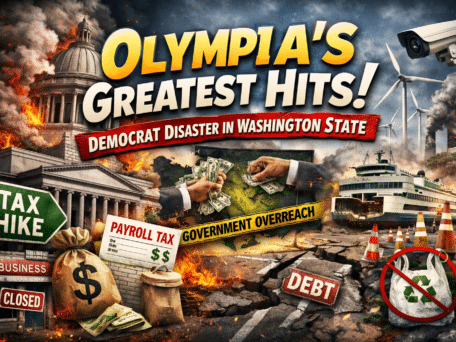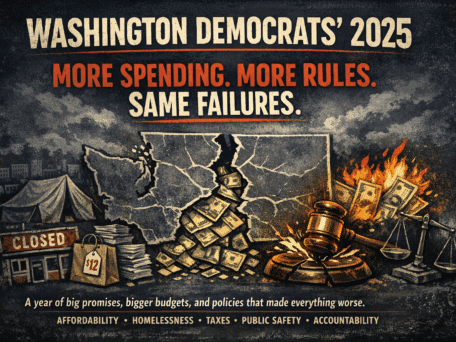As Shift reported, the state Department of Ecology began the process of writing a rule that would require businesses and organizations to abide by stringent regulations. According to a press release, Ecology is considering a rule that would impact businesses and organizations that are responsible for producing 100,000 metric tons. Likely, the rule will impact natural gas distributors, petroleum fuel producers, factories, power plans, waste facilities and metal manufacturers.
Ecology has also promised that the new regulations will require that companies Jay Inslee doesn’t approve of to “have an obligation to reduce emissions over time” but the government will provide a “wide variety of options to reduce greenhouse gas emissions.”
Jay Inslee directed Ecology over the summer to begin developing new carbon reduction regulatory rules that he thinks he can impose on the state using his executive authority. Our green governor’s insistence on the new rules is the direct result of his failure to pass his cap-and-tax scheme out of even the Democrat-controlled state House during the last legislative session.
A lot of unknowns concerning the details of the regulations still exist. But, as the Washington Policy Center’s Todd Myers recently pointed out, there are a few things we do know about what Ecology is planning to propose.
First, Myers writes that we know the “proposed regulations will cover 95 percent of the emissions the rejected cap-and-trade plan covered.” The regulatory impact on businesses and industries will be “essentially identical.”
Second, Ecology’s regulations will cost “an estimated $1 billion to comply.” As Myers points out, based on the mid-range estimate gas price increase of $20 per ton (it could be as much as $30 per ton), the annual cost of compliance for to Washington companies and consumers is over $1 billion.
Third, the Moses Lake solar panel manufacturer, REC Silicon, would have to meet the new regulations. And, the University of Washington may also have to abide by them. REC Silicon emits 140,674 MT of carbon, so it would have to comply with the new regulation, while a small increase in UW’s emissions would push the university over the line of compliance.
Fourth, though Ecology cites legislative authority for the rulemaking, the state Attorney General says it is not binding. Myers writes,
“In its filing of rulemaking, the Department of Ecology cited 70.235 RCW, Reduction of Greenhouse Gas Emissions to justify its authority. These rules, adopted in 2008, set targets for carbon emissions reductions – 1990 levels by 2020, 25 percent below that by 2035 and 50 percent below 1990 levels by 2050.
“The Attorney General, however, indicated recently [via a letter] that these are not binding targets and don’t oblige the state to take action…
“The Governor’s spokesman replied that nothing in the letter ‘says we don’t have the authority to act.’ That, however, is not the way government works. Agencies don’t get to do whatever they want until you pass a law stopping them in a game of bureaucratic catch-me-if-you-can. Government agencies and even the Governor himself must have authority to take an action.”
Fifth, Ecology Program Manager Stu Clarke recently said that the ruling making process couldn’t be done this way and that the complex rule would take anywhere from 18 to 24 months to complete. Yet, that didn’t stop him from signing the rulemaking notice that included a timeline of less than a year from start to finish. Myers wraps-up by asking, “Does it make sense to rush a rule that will affect every household in the state, costing $1 billion annually, so it can finish the summer before the election?”
The obvious answer is, of course, “no.” But, results are not what Inslee and his supporters are after. By every indication, the new regulations would produce results that are virtually meaningless to air pollution reduction and/or human health. In the end, extreme “green” policies are not about reducing carbon emissions. They are about even bigger government at the expense of taxpayers.




